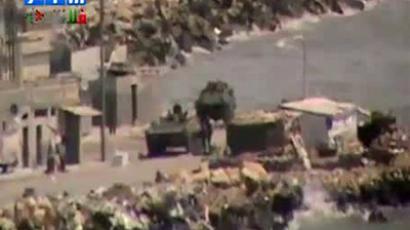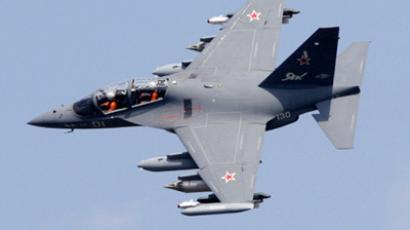Assad resignation would destabilize Syria - Moscow
At least four people have reportedly been killed and dozens injured in Syria after the army opened fire on anti-government protesters. The attack comes after the US and the EU called for Syria's leader to step down. Russia has not backed the call.
Rights activists reported gunfire in parts of southern Deraa province, the epicenter of the anti-regime protests that erupted on March 15, as well as in the city of Homs and the capital, Damascus. Tens of thousands reportedly took to the streets after Friday prayers to put pressure on President Bashar al-Assad after Western leaders demanded he steps down.Russia has maintained its stance that President Assad should be given more time – a minimum of one to two months – to implement promised reforms.Moscow believes President Assad is moving in the right direction and that the Syrian leader has earned trust with his recent actions: releasing political prisoners and repealing the state of emergency imposed in 1963 and which remained and in force for over four decades. President Assad has also opened the way for a multi-party system in Syria. “The Syrian leadership needs time to implement its reform program. But significant steps towards that have already been taken: the state of emergency has been lifted, the higher court of state security was abolished and a decree allowing citizens to take part in peaceful demonstrations was accepted. Syrians should negotiate, not fight. And the opposition as well as the regime is responsible for making that happen,” Foreign Ministry spokesman Aleksandr Lukashevich said. Russian experts believe Bashar Assad’s influence in the country will make ousting him impossible without unleashing a bloody conflict. His exit from the scene will only throw the country in chaos, says E. Minchenko, a Russian political expert. “I think Assad still keeps the controls in his hands. Moreover, I would not exclude the possibility of foreign inspiration of the unrest in Syria”, he explained. “If he leaves office, ethnic and religious confrontation will only intensify the crisis”.Moscow insists that external pressure would only lead to a deterioration in the current situation in Syria and hamper a transition to a more democratic regime. But Russia also says if Assad does not fulfill his promises then the international community will have to act. Karl Sharro, the author of Karl reMarks blog, belives that the Syrian people should have been given a chance to decide for themselves how to solve the problem.“In terms of Russia’s position, if you really want to stand aside and let the Syrian people decide it is not a case of Russia asking for more time for President Assad to implement reforms, because, let’s look at the history, and he has had 11 years to implement these reforms and that has not happened. So I think both sides should actually step aside and say let the dynamics on the ground, let the Syrian people decide for themselves what they want to do, and that is crucial.”James Corbett, editor of an independent news website, says Russia can play a key role in preventing the situation in Syria from repeating what has transpired in Libya.“It is really important right now how the Russian position in this unfolds, because obviously we are entering an unthinkable time where the idea of military intervention in Syria is on the table,” he said. “Only a major force like Russia seems at this stage to be capable of really preventing a repeat of what we have seen in Libya.”
James Denselow, a Middle East analyst based at Kings College London, says Americans understand that they will not succeed in Syria without Russia's support.“I think the Americans will now… really have to work hard to persuade the Russians that they are right on Syria, and that Russia is currently wrong,” he said. “So that is the next important step.”A wave of protests which started in March have become increasingly violent, with the number of police officers killed now into the dozens. In early June, militants killed more than 120 law enforcement agents in a number of assaults and the president ordered the troops to step in. Key cities captured by rioters were stormed and “cleansed” by troops loyal to President Bashar Assad. Human rights activists claim the conflict has led to the deaths of up to 2,000 people since its outbreak in March. But how many of them died with arms in their hands, activists do not mention, and they also omit to specify the number of police casualties. Extremists operating across the country have been trying to destabilize the situation on the ground and terrorize citizens.From the outset, the Syrian authorities have been stressing they are not fighting their people but gangs of armed militants, many of whom are not even Syrian citizens. New demands for the Syrian leader to step down came just 24 hours after Bashar Assad officially confirmed to the head of the UN that the situation in the country is under control and that all military operations are over, and promised more reforms.The reality is that the army is withdrawing from Syrian cities, but protestors and human rights activists are claiming that it remains in some towns – an assertion that cannot be verified since journalists are not allowed to work freely, staying mostly in the Syrian capital, Damascus.














